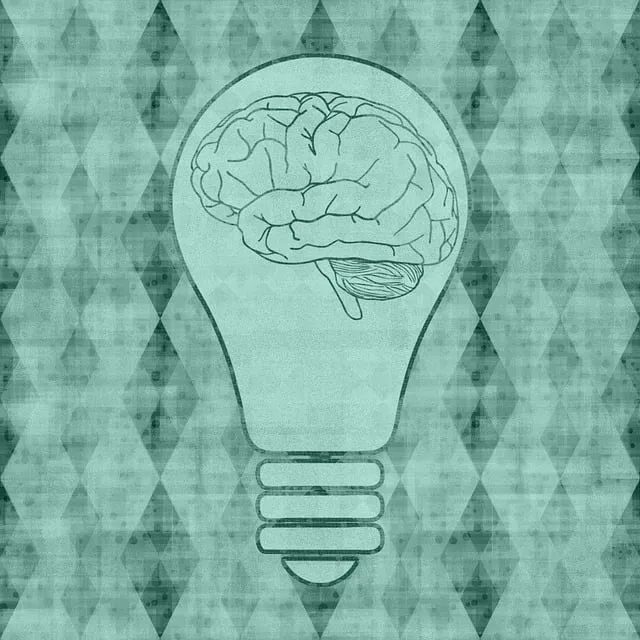Mental illness stigma prevents many from seeking crucial support, leading to unnecessary suffering in silence. Kaiser in Centennial addresses this through comprehensive stigma reduction initiatives, including skilled therapist access, education workshops, support groups, and self-care exercises. Their holistic approach creates a comfortable environment where individuals feel confident to discuss mental health openly without fear of judgment. By empowering therapists with specialized training and community outreach programs like Stress Management Workshops, Kaiser improves mental health outcomes in Centennial, fostering acceptance and encouraging help-seeking behaviors.
Mental illness stigma continues to be a significant barrier to recovery. This article explores comprehensive stigma reduction efforts, focusing on understanding the root causes and societal impacts. We delve into innovative approaches like Kaiser’s model, highlighting their success in fostering inclusive communities. Through training and education, professionals are equipped to provide compassionate care. Community outreach programs break down walls, fostering open dialogue. Additionally, real-life success stories from Centennial showcase the transformative power of stigma reduction, including access to Kaiser’s renowned therapists.
- Understanding Stigma: Barriers to Seeking Help
- Kaiser's Approach: A Model for Change
- Training and Education: Empowering Professionals
- Community Outreach: Breaking Down Walls
- Real-Life Impact: Success Stories from Centennial
Understanding Stigma: Barriers to Seeking Help

Stigma surrounding mental illness often acts as a significant barrier to individuals seeking much-needed help. Many people struggling with their mental health face societal perceptions that label them as weak or even morally flawed, which can lead to feelings of shame and embarrassment. This internalized stigma may cause individuals to hesitate or avoid reaching out for support, fearing judgment or rejection. As a result, they might endure unnecessary suffering in silence.
In the context of finding therapists, such barriers are concerning. For instance, when considering whether Kaiser has good therapists in Centennial, individuals might question if their privacy will be respected and if the therapist will judge them. However, initiatives focused on mental illness stigma reduction efforts play a crucial role in breaking these chains. By promoting understanding and empathy, communities can encourage open conversations about mental health, fostering environments where those in need feel comfortable seeking professional help. This, in turn, paves the way for individuals to access services like those offered by Kaiser, ensuring they receive the necessary care and support with enhanced confidence and without the shackles of stigma.
Kaiser's Approach: A Model for Change

Kaiser’s Approach to stigma reduction focuses on a holistic model that empowers both individuals and communities. This strategy involves several key components designed to foster understanding and acceptance. One of the primary avenues is providing access to highly skilled therapists in Centennial who are trained not just in mental health treatment but also in stigma reduction techniques. These therapists facilitate self-awareness exercises and promote open dialogues, helping patients to challenge negative perceptions about their conditions.
Furthermore, Kaiser emphasizes the importance of community engagement and education. They organize workshops, support groups, and awareness campaigns that educate the public about mental illness, its symptoms, and effective treatment options like Self-Esteem Improvement techniques. By integrating Stress Reduction Methods into their programs, Kaiser ensures that individuals not only manage their symptoms but also develop resilience against stigma. This comprehensive approach has been instrumental in creating a more accepting society where those with mental health challenges can access the care they need without fear of judgment.
Training and Education: Empowering Professionals

At Kaiser, a prominent healthcare provider in Centennial, efforts to reduce mental illness stigma are centered around empowering professionals through comprehensive training and education. This includes specialized programs that equip therapists with advanced skills in social skills training and conflict resolution techniques, ensuring they can address not just the symptoms but also the societal barriers their clients face. By fostering an environment where mental wellness is prioritized, Kaiser’s therapists are better equipped to guide individuals through various mental wellness journaling exercises, providing practical tools for self-care and resilience.
Through these initiatives, Kaiser aims to create a supportive ecosystem that encourages open conversations about mental health. The result is a more skilled workforce capable of delivering compassionate care while helping clients navigate their journeys towards recovery with dignity and understanding. Additionally, the focus on education extends beyond therapists, promoting a culture where everyone, from administrative staff to medical professionals, understands the nuances of mental illness stigma and its impact on treatment outcomes.
Community Outreach: Breaking Down Walls

In the pursuit of stigma reduction for mental illness, community outreach plays a pivotal role in fostering understanding and empathy. Organizations like Kaiser Permanente Centennial, known for its commitment to healthcare excellence, are at the forefront of these efforts. By bringing mental health services directly into communities, they break down barriers that often isolate those struggling with their mental well-being. Such initiatives ensure that individuals from diverse backgrounds can access resources tailored to their unique needs, fostering a sense of belonging and support.
Community outreach programs, including Stress Management Workshops organized by the Compassion Cultivation Practices division, offer valuable tools for coping with modern stressors. These workshops not only equip participants with effective stress management strategies but also promote compassionate self-care, challenging societal norms and misconceptions surrounding mental health. Through these efforts, communities become more inclusive, nurturing a culture where conversations about mental illness are open, honest, and free from stigma. This shift in perspective empowers individuals to seek help without fear of judgment, ultimately contributing to improved mental health outcomes for all.
Real-Life Impact: Success Stories from Centennial

In real-life narratives from Centennial, the impact of mental illness stigma reduction efforts is evident in numerous success stories. Individuals who once struggled with conditions like depression, anxiety, and bipolar disorder have found new hope and improved quality of life through various interventions. Many credit their progress to access to quality mental health services, including does Kaiser have good therapists Centennial who are trained in evidence-based practices such as Mental Wellness Coaching Programs Development and Compassion Cultivation Practices. These professionals foster an environment of understanding and support, enabling clients to build inner strength development and navigate life’s challenges more effectively.
Centennial’s commitment to stigma reduction goes beyond therapy sessions. Community initiatives focused on education, awareness campaigns, and peer support groups have played a pivotal role in fostering an atmosphere of compassion and acceptance. As a result, residents are increasingly open about their mental health journeys, breaking down barriers and encouraging others to seek help without fear of judgment. This collective effort has led to improved mental wellness outcomes, proving that when communities come together, they can create lasting positive change for those facing mental health challenges.
Stigma reduction is a multifaceted approach, as demonstrated by Kaiser’s innovative model and community outreach programs. By addressing barriers to seeking help through education and empowerment, mental health services become more accessible. The success stories from Centennial highlight the positive impact of these efforts, proving that with continued advocacy, individuals can find the support they need. When it comes to finding good therapists, Kaiser’s reputation is solidified by its commitment to reducing stigma and improving mental health care for all.






